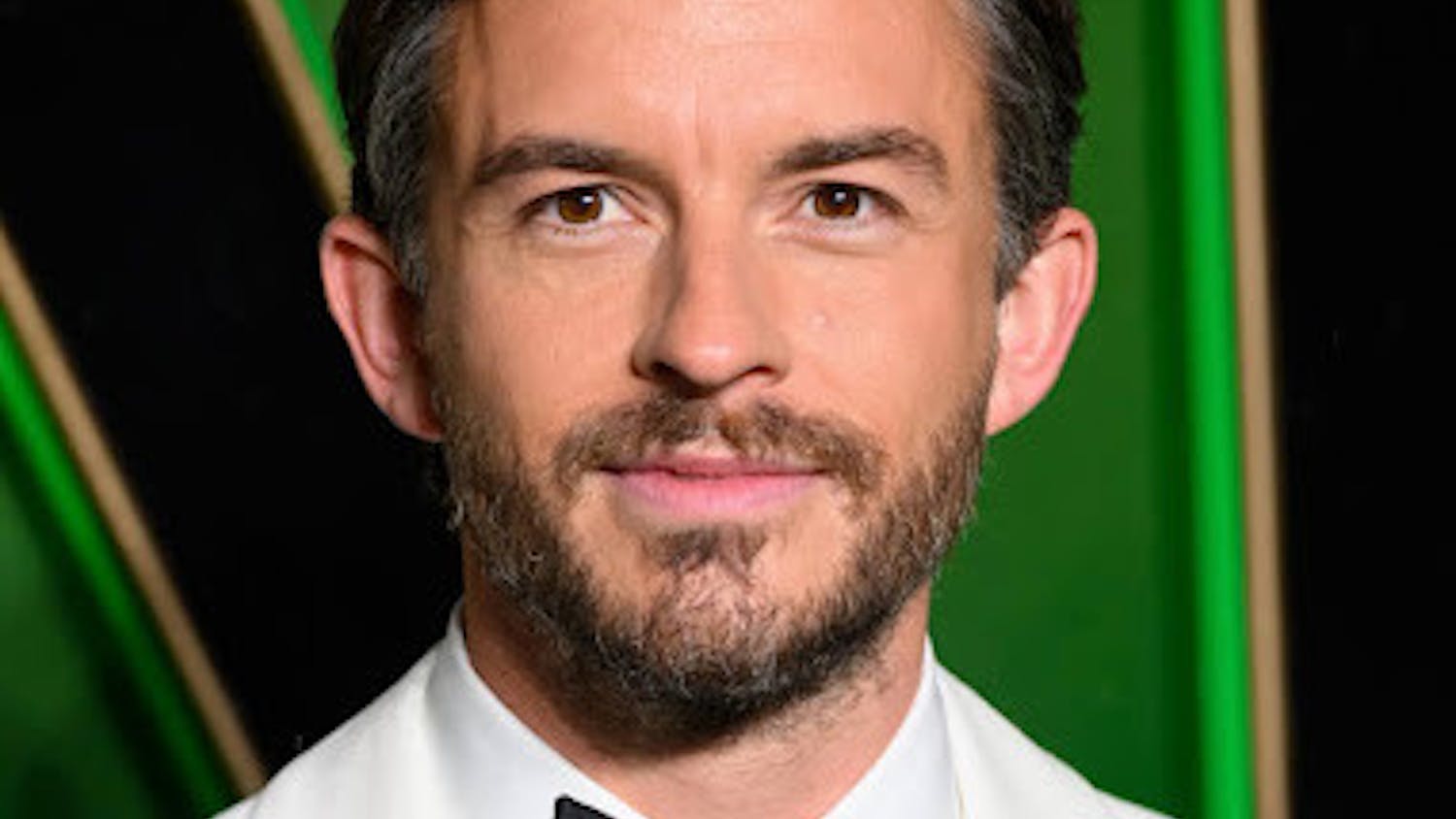After 21 years, Phish has broken up. They brought their career to an end close to where it began, Coventry, Vt., on Aug. 14 and 15. An odyssey brought us there for the second night.
By the time we arrived on Sunday night at the Newport State Airport, where the festival was held, the worst of the rain had ended.
The rains had been so bad that the band's Web site, phish.com, encouraged ticket holders to stay away from the campsite until Saturday morning, the 14th, the first day of the festival. We proceeded nonetheless, underestimating the ferocity of the weather.
Stopped at a gas station about a quarter of the way up the eastern edge of Vermont at 6 a.m. Friday morning, floods were all over the local papers. Alex Ruthrauff, one of my longtime road companions, said, sticking out his hand, "I'll be able to handle it."
Twenty-four hours later, the weather had, in fact become much worse. After driving another two hours north from the gas station, we found the line of traffic, idling along, eating up the breakdown lane and the right lane along Interstate 91.
We tried to eat up time while listening to the radio station being broadcast out of Coventry, WMOO, telling us to be patient, they were letting cars in as fast as possible.
Thursday and Friday brought three more inches of rain to Coventry. "We soon realized that we had two big problems," John Paluska, Phish's manager, said in a statement released on the band's Web site on Aug. 23. "The first was that we weren't bringing in cars at a fast enough rate. The second was that it was almost irrelevant how fast they were coming in because we had lost so much parkable terrain."
The 600 acres of land had become a muddy mire and by 4 a.m. Saturday morning, as determined fans, ourselves included, slept collapsed across their steering wheels, the decision was made that no more cars could be safely brought onto the site. That morning we awoke to an announcement over WMOO telling us to go home. We listened in silent disbelief as the traffic began to disburse north - we went with it.
The farther we drove, the more cars we saw ditched along the side of the road, the more people we saw gathering up what they could and setting out on foot. Before too long the Vermont State Police was turning us around, sending us south again. When we asked if they were letting walkers into the site, we were met by stern words.
"We're not supposed to talk to you," the Statey said, "my boss told me to shut up."
So we were spit south. Utterly wired and knowing the police were closing off the highways, I sped up to 115.
What now? Tens of thousands of disenfranchised Phish fans had just been turned loose on the Northeast Kingdom. We needed to get our bearings.
Twenty minutes later we were stopped outside Nick's Gas 'n' Go in Lyndonville, asking where we could set up our grill and figure out a plan of action.
This is how we found Don's fairground. It sat across a river and up a hill above this picturesque town with white steeples standing against the mountains.
Don was an old man wearing suspenders, a baseball cap emblazoned with the stars and stripes, riding around in a golf cart converted to resemble the cab of an 18-wheeler. He charged us $5 to camp there.
Don's fairground was luxurious by the standards we had become accustomed to. The ground was dry, the grass was thick. There was a grandstand with indoor plumbing, even a shower.
At least 50 other cars trickled after us. We met our new neighbors, sharing our suffering stories, drinks, drugs and rides.
Night fell. WMOO was broadcasting Phish's sets and all the cars in the field rolled down their windows, turned up their radios. The townies came too, a big group of husbands and wives wandering around the field, accepting the beer the fans offered, laughing and telling local jokes in thick, syrupy accents. We laughed along with them, but didn't really know why. We could feel their joy; they were enjoying this impromptu celebration as much as we were.
This was the biggest thing the Northeast Kingdom had ever seen, they told me, and they wanted to be a part of it. "You've all been through so much," one of the wives said, giving me a jug of Trout River beer (the local brew) in return for a cigarette. "We just want to make sure you have a good time," she said. We did.
The next morning, we were given free coffee and bagels by the proprietor of a caf? in town; he accepted donations in return. We gave him what little change we could scrounge up.
An hour later we were speeding, 70 miles an hour, up and down dirt roads. A man had arrived who'd offered to lead us, some 15 cars, in a big dusty caravan to another farm that he promised was a 20-minute walk away from the airport. Perhaps we would see Phish after all.
Our new home was a monstrous big field atop a luscious green mountain, we ran and threw our Frisbee as far as we could. We were nomads, our whole fairground community picking up and moving with the wind. All we needed was the ground beneath our feet and we would survive.
We ate lunch and packed our backpacks full of blankets, beer and garbage bags. From what we heard, the airport was a swamp. We were prepared for any hardships and set out on foot.
The 20-minute walk we'd been promised had turned into four miles. The bastard had lied to us. The State Police stood at the dirt crossroad, only letting cars with Vermont tags go up the road towards Coventry. Local boys ferried the Phish fans up the road in the backs of their pickups for $5 a head, but we had no money.
We stuck out our thumbs anyway and a red truck pulled over ahead of us.
"We've got no money," we said, "but we'll give you five beers." He accepted and we climbed into the bed, took off.
We crouched on top of a hillock in the venue field at Coventry some hours later - the catharsis of our pilgrimage. Yes, there was mud - lots of it, cars buried in it, fans caked with it; its putrid stench hung over everything. We did not care. We'd made it.
The first set was fun and playful, the band played with a looseness it had lacked in recent tours, since after the band came back from its two-year hiatus.
"In 21 years ... I've never, ever been nervous going on stage before a Phish concert ... Tonight, I'm a little nervous," Trey ?nastasio, the group's front man said after 'Weekapaug Groove.'
The first set showed they had no reason to be - they tore through Phish standards, brought out their mothers to do a dance they dubbed the "Sexy Bump," shared the stories behind the songs (for instance, "Wolfman's Brother," is a reference to the band's drummer, Jon Fishman).
The second set began with "Down With Disease" and a swarm of glow sticks. I had never seen so many in my life, hundreds of thousands of neon bars flying indiscriminately through the air towards the band. This is not an uncommon ritual at the Phish show, and the band seemed to know this was the last time they would see it.
Phish wept. As the set continued, Paige McConnel, the keyboardist, cried trying to sing the beautiful "Wading in the Velvet Sea." His voice was choked, shaking at the emotional culmination of 21 years worth of music. He pushed the microphone away from his face, too wracked with tears to continue - we knew how he felt. Trey sang the song instead.
After coming out of a botched rendition of "Glide," a track off their second album "A Picture of Nectar," Trey leveled with the audience. "It's emotional, so we're have some emotional ups and downs here," he said, "I'm sure you are too."
He continued, speaking from his heart, letting tears flow down his face, about the band's beginnings. "We had so many ideas," Trey said, "we were going to do this thing and ... break down that rule. When I think back on it now I think of how little I knew about music. And about friendship. To always have these three people there with you..." he trailed off, too taken by emotion.
The rest of the band spoke as well, thanking the crowd, 70,000 strong, most of whom had abandoned their cars, thousands of them parked in neat rows along the interstate, camped at farms across the countryside, and taken to the street. "All the people that walked in here," Fishman said, "it's the greatest compliment that we could have."
As the band's moment came to a close Trey came back to the microphone, "It's now time to blow off some fucking steam."
A twenty minute version of 'Split Open and Melt' ensued, a soaring, epic jam that showed exactly what this band was capable of.
Phish ended their 21-year-long career, after fireworks exploded at the close of their third set, with an unreleased song, "The Curtain With." Trey sang: "As he saw his life run away from him, thousands ran along, chanting words from a song, 'Please me, have no regrets." After this, silence.
We hitched a ride back from a nice Vermont family, free of charge. As we rode back down the dirt road towards the farm I was struck. Even through all of this, the traffic, the denial, the hitchhiking, the dirt and mud and lack of sleep, there was no better way to say goodbye to this band.
We had come to know the rolling hillsides of northern Vermont, the locals and the lore, the great green pastures, the place from which Phish had been born.
We had become a part of it.
Driving in my car in the days after we returned, I listened to the albums over and over again. The music is stunning. I never realized how much I loved this band, their constant presence, until they were gone.






